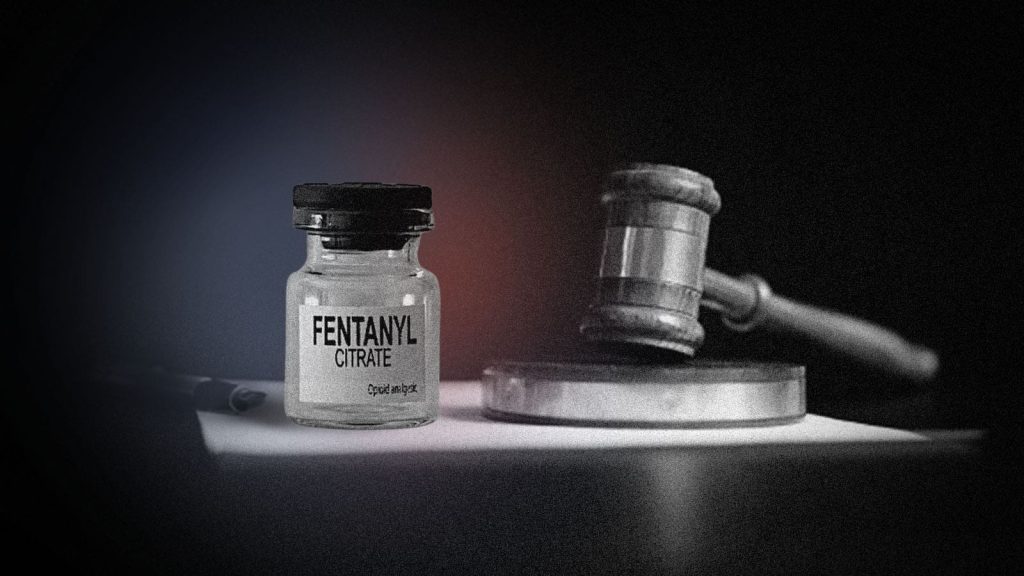
A Baltimore man has pleaded guilty to drug trafficking charges, admitting to distributing enough fentanyl to potentially kill tens of thousands of people, according to the Department of Justice (DOJ).
Robert Frazier Jr., known as “Glass,” pleaded guilty to conspiracy to possess with intent to distribute fentanyl, cocaine, and marijuana. As part of his plea agreement, Frazier agreed to forfeit two high-powered rifles, a handgun, and ammunition.
Court documents state that law enforcement first became aware of Frazier’s operations during an eviction at his apartment in September 2021. To avoid arrest, Frazier assaulted a Baltimore City Sheriff’s officer and fled by jumping from a second-story window before driving off.
A search of the residence uncovered quantities of fentanyl, marijuana, two rifles (including a stolen AR-15), a digital scale, and cash. Authorities later conducted controlled purchases of fentanyl and cocaine directly from Frazier at a new location.
When executing a search warrant at Frazier’s new residence, law enforcement recovered cocaine, marijuana, a .38-caliber handgun, drug packaging materials, and another digital scale.
Disturbingly, the plea agreement states that Frazier distributed up to 160 grams of fentanyl – enough to cause over 32,000 fatal overdoses based on a potentially lethal dose of just 2 milligrams.
U.S. District Judge Julie R. Rubin has scheduled Frazier’s sentencing for July 24, 2024, at 10 a.m. He faces a maximum penalty of 20 years in federal prison for his crimes.
Frazier’s case underscores the scourge of fentanyl plaguing communities like Baltimore. The powerful synthetic opioid, 50 times stronger than heroin, has fueled a staggering rise in overdose deaths nationwide when mixed illicitly with other narcotics.
While removing a significant drug source from the streets offers some relief, the staggering quantities of fentanyl trafficked highlight the urgency in combating the opioid epidemic through a comprehensive approach of enforcement, treatment, and prevention.
